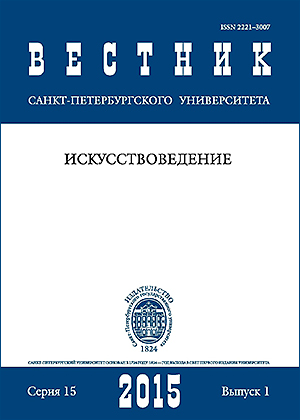Perception as the process of cognition in works of Ilka Gedő and Bruno Schulz: an experiment in hermeneutic study
Abstract
For the first time in Russian language the article analyses the art of Hungarian artist Ilka Gedő (1921–1985). The study has been conducted by the method of philosophical hermeneutics and is an attempt to come closer to understanding Gedő’s pieces of art by means of revealing the matter that had shaped her artistic world outlook. The main text taken as a basis for the interpretation is the prose of Polish writer Bruno Schulz (1892–1942). This approach is justified not only by the figurative similarity between the works under consideration (that was firstly noticed from another point of view by Istvan Hajdu in his monograph “The Art of Ilka Gedő”), but also by the common context, namely, the dialogical philosophy of Martin Buber that influenced on the both artists’ world outlooks. The article deals with such issues as interpretation of matter, time, and reality in the art space of Gedő’s and Schulz’s works.
Keywords:
Ilka Gedő, Bruno Schulz, Martin Buber, hermeneutics, dialogical philosophy, art, matter, time, artistic outlook
Downloads
References
Downloads
Published
How to Cite
Issue
Section
License
Articles of "Vestnik of Saint Petersburg University. Arts" are open access distributed under the terms of the License Agreement with Saint Petersburg State University, which permits to the authors unrestricted distribution and self-archiving free of charge.






